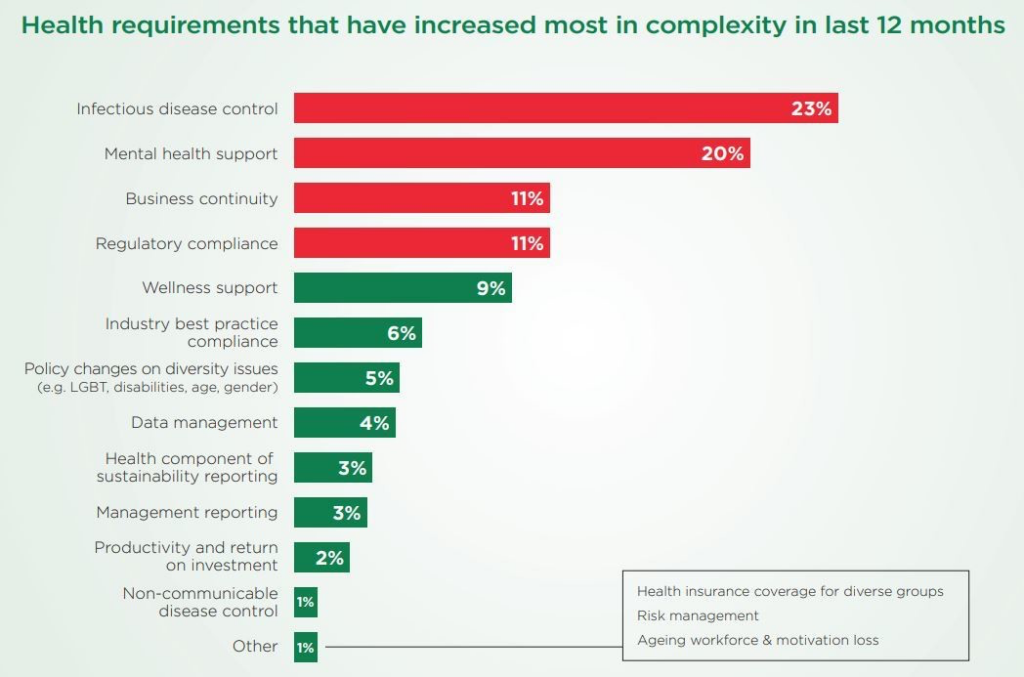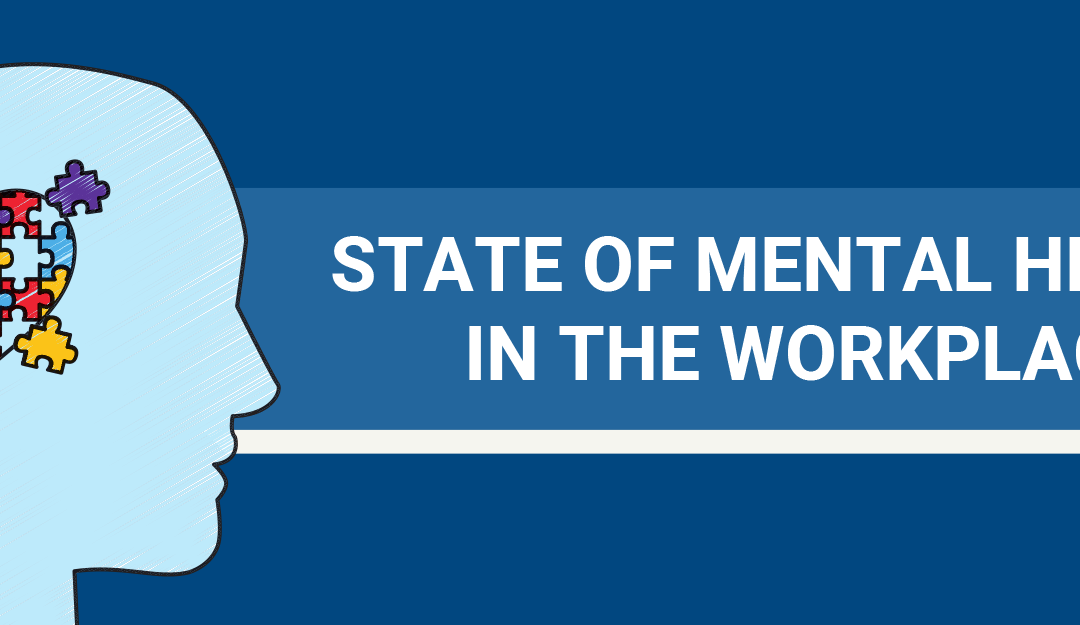69% of workers say the coronavirus pandemic is the most stressful time of their entire professional career, which has aligned with stark increases in new prescriptions of antidepressants, antianxiety and anti-insomnia medications. Human Resource Executive
For organizations across the world, mental health support is second only to infectious disease control in terms of health and safety requirements

In 2020, 58% of employees who struggle said their employer doesn’t offer mental health programs that meet their specific needs, or they are difficult to access/understand. Metlife 2020 Employee Benefit Trends Study.

Response from Employers
Since then, employers have moved to step up to address mental health concerns like raising the visibility of EAP programs, talking openly about mental health at town hall meetings, and adding new resources like OnDemand mobile counseling.
It looks like these efforts are working.

Wildly unprepared (because there’s no playbook for what’s happening), HR played the role of the quarterback during the pandemic. Angela Kohl, an HR professional with over 15 years of experience, gives us a look into what this was like to be thrust into that seat.
Looking back at the last 18 months, what was the most challenging about it?
Everything started to blend together. Covid, social unrest, politics – everything ran together, and it was difficult to navigate the waters with employees.
Bombarded with so much uncertainty, our goal was to make a sound judgment with the information we had at the time. At times, we became OVERLY cautious with the protocols we put in place. Overall, it continues to be really tough to manage through, but as HR professionals, we had to set aside that stress because we have to focus on employees.
What do you see as one of the primary factors leading to the great resignation?
For a lot of people, no one checks in on them. Covid and social unrest were definitely catalysts. Times of stress expose how companies truly operate. Employees are able to see more clearly and can decide if they’re aligned or not.
How did mental health challenges show up at your workplace?
We saw the most employee relations issues in 2020. It was exhausting, and we couldn’t get away from it. Part of the issues stemmed from employees not knowing how to draw a line between work and home. Everyone has 2 phones, Teams, IM, etc. In many organizations, the expectation is that if you have a company device you’re expected to be reached.
It’s no wonder employee relations issues are on the rise. Here’s how mental health challenges have shown up across the board:


What was your response to that?
We gave employees coaching, added OnDemand mobile counseling, and talked about mental health openly at town hall meetings. We also provided training to managers to identify things to look out for. In severe instances, we brought counselors on-site.
And how did YOU feel?
It’s been really stressful. I finally had to get to a place where I can’t talk about covid anymore outside of work. It’s really hard to FIGURE IT OUT AS WE GO. What we’re experiencing now is nothing that we’ve experienced before. There were times it was really ugly. For those of us in a position to make an impact, we have to take it really seriously. I just want to ensure a SAFE, healthy, and inclusive environment for my employees.
What’s your biggest challenge right now?
The challenge we have right now is the 100-person mandate.
Traditionally seen as a cost center or a support function, the HR department has changed significantly in the last two years. HR is playing a strategic role in some of the most important initiatives companies are currently embarking on. New titles such has Chief Health Officer has popped up in non-healthcare companies. Additionally, companies are beefing up the department in order to navigate the complexity of the new workplace. With HR having more strategic input, as Ms. Kohl says,
We’re going to come out of this, to get people in a better place.
Angela Kohl, HR Professional

